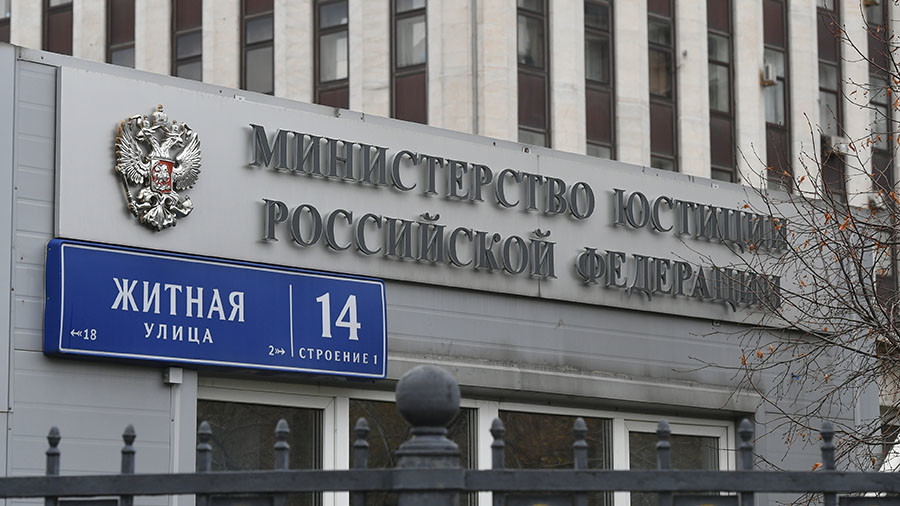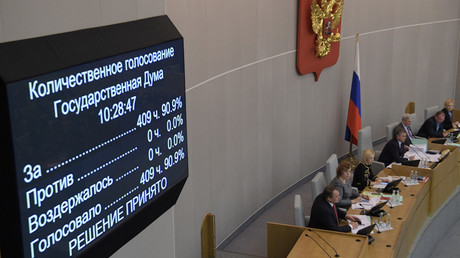Putin orders Justice Ministry to maintain register of foreign agents in mass media

The order was posted on the government website for legal documents on Monday.
Also on Monday, the head of the upper house Commission for Information Policies, Senator Aleksey Pushkov, told reporters that the commission plans to look into the proposal to deprive US mass media outlets of accreditation with the Federation Council.
“On December 13 we will hold a session of the commission and discuss, among other things, Russia’s mirror reply to the pressure on RT America applied in the United States. That could include a ban on accreditation with the State Duma and the Federation Council of American mass media that the Justice Ministry recognizes as foreign agents,” Pushkov was quoted as saying by RIA Novosti.
The bill requiring media outlets operating in Russia, but funded from abroad, to register as ‘foreign agents’ was signed into law by Putin on November 25. The law applies to any foreign organizations that operate with or without registering as a company if they are engaged in putting out printed, audio, audio-visual, or any other content prepared for an unlimited group of people.
The bill was prepared and drafted as a reply to a US Department of Justice order to RT America to register as a foreign agent before November 13. US authorities threatened to freeze RT America’s assets and arrest its chief if it did not comply. On November 10, RT America (officially registered as T & R Productions LLC) filed as a foreign agent with the department of justice.
In late November, the head of the lower house Legislative Committee, MP Pavel Krasheninnikov (United Russia), drafted a motion introducing large monetary fines as punishment for companies that violate the law on foreign agents in mass media.
The original Russian Foreign Agents Law, introduced in late 2012, obliges all NGOs that receive funding from abroad and are engaged in political activities to register as foreign agents or risk substantial fines. In November 2014, the law was expanded by a bill making it illegal for Russian political parties to receive sponsorship from, or enter into any business deals with, NGOs that have “foreign-agent” status.











